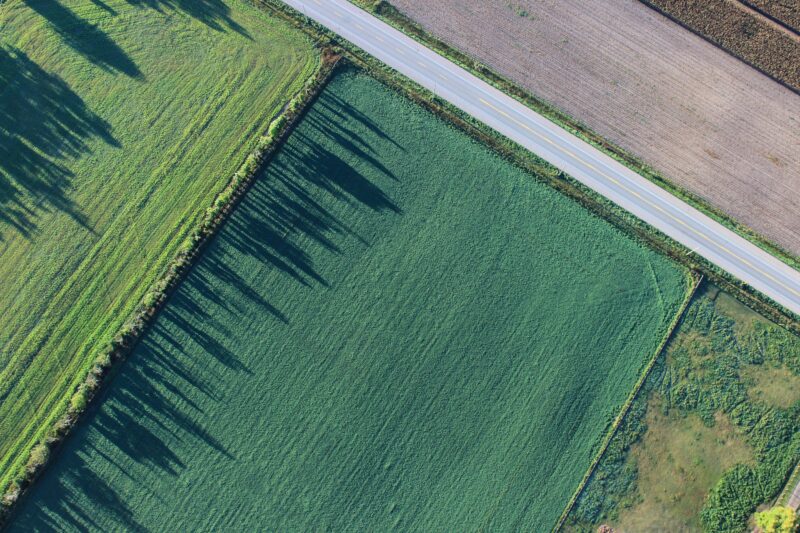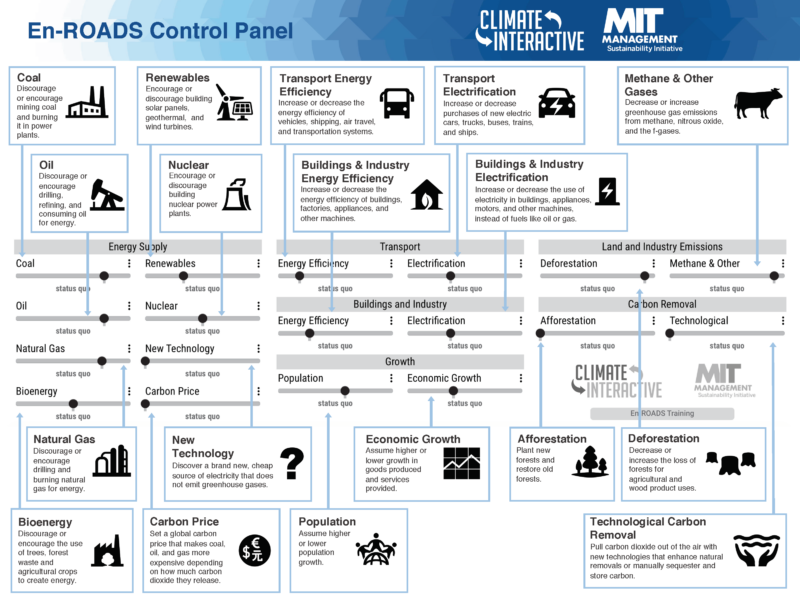Roshni Mathews is a social responsibility enthusiast and student in the 2020–21 cohort of the Graduate Diploma in Social Responsibility and Sustainability.
Kathryn Cooper is Program Manager for the Graduate Diploma in Social Responsibility and Sustainability at the University of St. Michael’s College, a Professor of CSR at Conestoga College and the President of the Sustainability Learning Centre.
Using Experiential Learning to Understand the Bigger Sustainability Picture
To some of us, the current pandemic is a warm-up for the climate crisis. For others, there is a direct connection between changing climate and infectious diseases.
Amid the roller coaster of pandemic cases, students in St. Mike’s Graduate Diploma in Social Responsibility and Sustainability were busy recently seeing the connection and designing a world that could adhere to the Paris Climate Agreement’s 1.5 degree C warming. Divided into Zoom teams, participants played the roles of World Governments, Clean Tech companies, Climate Activists and Fossil Fuel businesses in an international Climate Summit simulation. They learned first-hand the level of collaboration needed to make the planet the climate-stable and socially just place it needs to be. Topics on the debate floor included, “Can focusing on small changes leverage big results?” and “Can building new connections between stakeholders generate environmentally sustainable, socially just possibilities for all?”
These were heady questions for a Monday morning, but with the help of Climate Interactive’s En-ROADS Climate Simulator and the program’s own Climate Ambassador, Laura Lindberg, the group came away with important insights.
“There is no ONE solution on climate action,” says student Tayna Thorpe, Senior Advisor, External Affairs and Communities, Rio Tinto, a participant in the program. “No single action is sufficient. Many levers are required to meet the 1.5 degree target. It truly is all-hands-on-deck time.”
And that is why student Laura Lindberg chose to study the role of climate conversations and became an En-ROADS Climate Ambassador for her capstone project, the summative work for the CSR program. Lindberg, recently employed by PepsiCo in New York and Toronto, joined the program to better understand the impact of the climate crisis.
“I am increasingly concerned about the state of the climate and dire implications for our continued survival. To be honest, I find it difficult not to think about. I felt I needed to do something significant to help,” she notes. “I love presenting and facilitating, so when I found the En-ROADS simulation and training, I knew it would be a tool I could use to make a difference.” As the certified En-ROADS facilitator, Laura guided the climate role play by taking on the role of executive secretary of the United Nations Framework Convention on Climate Change. “It was the first time the En-ROADS Climate Summit had been delivered on Zoom…Companies around the world are beginning to use this tool for employee training and scenario planning. I am proud to be leading USMC’s introduction to this groundbreaking tool,” she says.
“We want participants in this program to challenge their worldview,” notes Kathryn Cooper. “We are living the unintended consequences of our unexamined assumptions about the environment, society and business. Participating in the simulation and role play engaged the cohort in an interactive, thought-provoking way. I think we learned that everyone has a role to play in addressing global climate change. None of us can solve this alone, and small measures won’t cut it. We are all part of a larger system and every policy lever needs to be pulled. Everyone reading this article has a role to play.”
After using the En-ROADS simulation, CSR participants understood at a deeper level which policies and strategies are more likely to have a big impact.
“Cross-industry and cross-sector partnerships are required to make significant environmental progress,” says Roshni Mathews, who took the free training sessions to become the En-ROADS facilitator for this exercise. “In this simulation, we all learned that collaboration, shared goals, and a willingness to be flexible for the greater good is key to making impact.”
About the Graduate Diploma in Social Responsibility & Sustainability:
For close to 20 years, the University of St. Michael’s College has been the go-to school in Canada to study Corporate Social Responsibility, an operational philosophy also known by a variety of other labels, including ESG (Environmental, Social, and Governance), Corporate Citizenship, Social Purpose and Social Innovation. The program is renowned for blending Liberal Arts critical thought, social justice, and practical problem solving with expert instructors and mentored capstone projects. In 2019, Dr. David Sylvester awarded the first President’s Capstone Project Awards.
Read other InsightOut posts.


